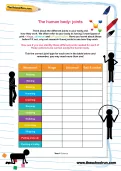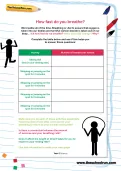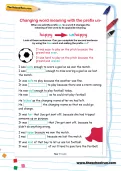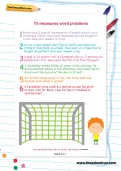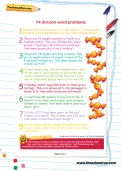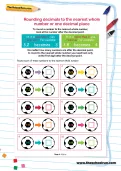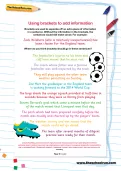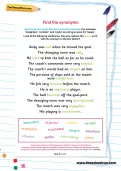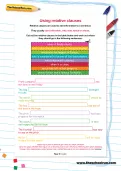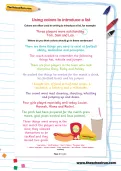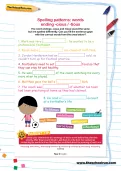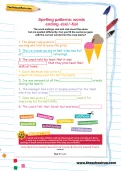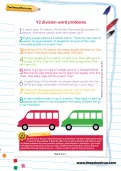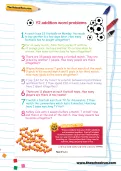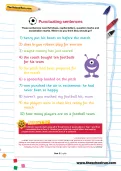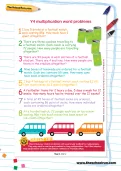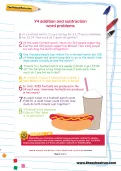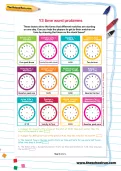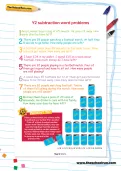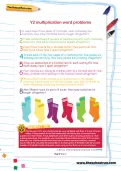Think about the different joints in your body and how they work. We often refer to your body as having 3 main types of joint – hinge, universal and ball and socket. Have you learnt about these before? If not, why not research these joints to see how they work. Now see if you can identify these different joints needed for each of these actions to be carried out by the human body.
or
Register to add to your saved resources
Already a subscriber? to view this content.
We breathe all of the time. Breathing is vital to ensure that oxygen is taken into our bodies and harmful carbon dioxide is taken out of our body… but how fast do we breathe? When does this change? Why? Complete the table and see if this helps you to answer these questions.
or
Register to add to your saved resources
Already a subscriber? to view this content.
When we add the prefix un- to a word it changes the meaning of the word to its opposite meaning. Look at these sentences. Can you complete the second sentence by using the blue word and adding the prefix un-?
or
Register to add to your saved resources
Already a subscriber? to view this content.
Can you work out the answers to these tricky word problems all about measurements?
or
Register to add to your saved resources
Already a subscriber? to view this content.
Can you answer these division word problems? They are all about football!
or
Register to add to your saved resources
Already a subscriber? to view this content.
A Year 5 maths worksheet created by an education expert that will help your child round decimals to the nearest whole number or one decimal place - with a football theme.
or
Register to add to your saved resources
Brackets are used to separate off an extra piece of information in a sentence. Without the information in the brackets, the sentences would still make sense. Where do you think brackets should go in these sentences?
or
Register to add to your saved resources
Synonyms are words that have a similar meaning. For example: ‘delighted’, ‘ecstatic’ and ‘joyful’ are all synonyms for ‘happy’. Look at the following sentences. Can you replace the green word with its synonym in the box below?
or
Register to add to your saved resources
Already a subscriber? to view this content.
Relative clauses are used to add information to a sentence. They usually start with when, who, that, which or whose. In this teacher-created worksheet for primary school children, you will need to cut out the relative clauses in the table and work out where they should go in the sentences.
or
Register to add to your saved resources
Colons are often used in writing to introduce a list. Where do you think colons should go in these sentences?
or
Register to add to your saved resources
Already a subscriber? to view this content.
The word endings -cious and -tious sound the same but are spelled differently. Can you fill the sentence gaps with the correct words from the ones below?
or
Register to add to your saved resources
Already a subscriber? to view this content.
The word endings -cial and -tial sound the same but are spelled differently. Can you fill the sentence gaps with the correct words from the ones below?
or
Register to add to your saved resources
Already a subscriber? to view this content.
Can you answer these division problems? They are all about football!
or
Register to add to your saved resources
Already a subscriber? to view this content.
Can you work out the answers to these football word problems?
or
Register to add to your saved resources
Already a subscriber? to view this content.
These sentences need full stops, capital letters, question marks and exclamation marks. Where do you think they should go?
or
Register to add to your saved resources
Already a subscriber? to view this content.
Test your multiplication skills with these football word problems.
or
Register to add to your saved resources
Already a subscriber? to view this content.
How good are your addition and subtraction skills? Find out by solving these football-themed word problems.
or
Register to add to your saved resources
Already a subscriber? to view this content.
These boxes show the times that different matches are starting on one day. Can you help the players to get to their matches on time by drawing the times on the clock faces?
or
Register to add to your saved resources
Already a subscriber? to view this content.
How are your subtraction skills? Can you work out the answers to these football subtraction word problems?
or
Register to add to your saved resources
Already a subscriber? to view this content.
Can you solve these multiplication word problems – you'll need to know your 2, 5 and 10 times tables!
or
Register to add to your saved resources
Already a subscriber? to view this content.
